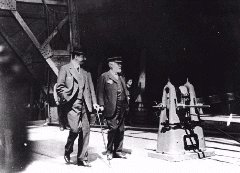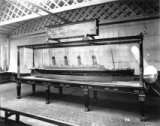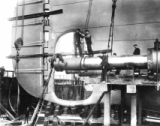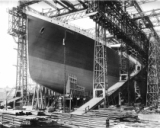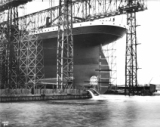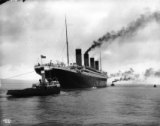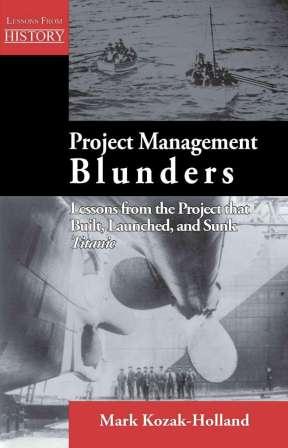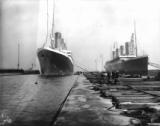LFH Overview
Titanic Workshop
Managing Projects in the Face of Meddling Stakeholders
Using the case study from the Titanic
|
Summary Description of WorkshopThis workshop looks at the complex process of gathering requirements from multiple stakeholders. It examines how requirements (functional and non functional) need to be carefully balanced so that one does not overshadow the other. The workshop juxtaposes the Titanic case study and modern projects and examines the difficulties in managing principal stakeholders and the sponsor through the requirements process. Often they can unwittingly compromise the project by actions taken over requirements. The shipping company White Star had a mission to meet competitive pressures by launching 3 new super liners to service Transatlantic travel. The fact that White Star developed a new business strategy and embraced an emerging technology underscores the similarities to today's challenge of rolling out new projects. But as the project team went through the process of gathering and managing requirements, both functional and non functional, compromises were made to this process by naval architects. They were pursuing the sponsor's project mantra “to create the ultimate passenger (first class) experience.” In fact, inept project management and the inability to control stakeholder meddling allowed major compromises to be made in every project stage - from design to construction, to testing, and right into implementation. The workshop makes a very strong case that the causes leading to the sinking of the Titanic are very similar to reasons why today's projects fail. In many ways the Titanic project team should have succeeded because of the attention they paid to risks and minimizing these. For example, by:
But as the project was executed decisions were made that compromised those risk reduction features in addition to strong business pressures to "go live" before completing the testing phase. In the end, the belief that the Titanic was unsinkable contributed to its demise in much the same way as a modern project is marketed to its target user base and expectations are not met due to short changing the project process. The workshop steps through the construction of the Titanic, highlighting significant decisions made and interjecting the business influences that contributed to the fate of the project. The Titanic story is one of recent histories most well known project failures. They thought the Titanic was unsinkable but they were wrong! Designed under the Lessons-from-History series, this workshop will breathe new life into your project management learning. The workshop takes lessons from the historical project and enables you to recognize the parallels in your own organization and projects. You will undertake a range of practical exercises throughout the day that allow you to get-into-the-shoes of key project members, understand their profiles and motivation, enabling you to understand the decisions they made. This allows for various what-if-scenarios and from this you can then relate lessons back and apply new learning to your own projects. This fully interactive one day workshop incorporates principles from leading Project Management methodologies such as PMBOK and PRINCE2, but also demonstrates that successful Project Management does not need sophisticated tools. Upon the successful completion of this workshop, you will be able to better utilize project management and identify warning signs that could take a project off track, and how to counter these. |
|
Learning ObjectivesYou will learn how the lessons learned from Titanic’s project and subsequent disaster can be applied to contemporary projects. Upon the successful completion of this workshop, the attendees will be able to identify warning signs at each phase of the project that could take it off track including the following:
Entertaining and full of intriguing historical details, the workshop helps project managers to work out strategies to deal with these warning signs, and how to respond to the fall out of these. |
|
The Benefits of the WorkshopIn today's world, project teams face greater pressure than ever to complete on time and on budget. In modern projects, we often have situations where we believe that we have designed, built, or launched a "perfect" solution. However, it's very easy to underestimate the broad range of ways in which circumstances can impact the success of a project. Without effective project management even what seem to be perfect solutions can fail. The benefits of the workshop include the ability to help project team members to:
|
|
|
Note: This course conforms to the internationally recognized standards of the Project Management Institute (PMI®). You will receive 8 PDUs (professional development units) upon completion. The workshop is based on the following publication. |
|
|
“Mark, the presentation on how lessons from the building and maiden voyage of the RMS Titanic are applicable for today's projects was outstanding. What was particularly useful was how you related the PMBOK knowledge areas to that project, and then discussed with our panelists the parallels that could then be drawn with our agency's projects. It was a perfect example of how, even on the best run projects, the results may be disastrous if shortcuts are taken in quality assurance and control. You definitely made the case for continually reviewing your project's risks and assumptions and checking their validity in the light of changing scope. Well done!” |

